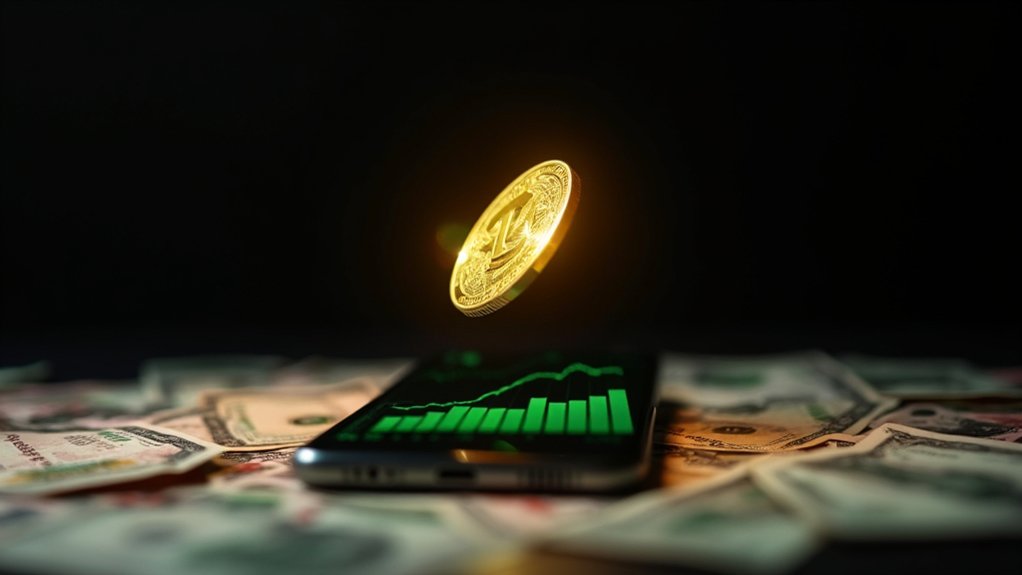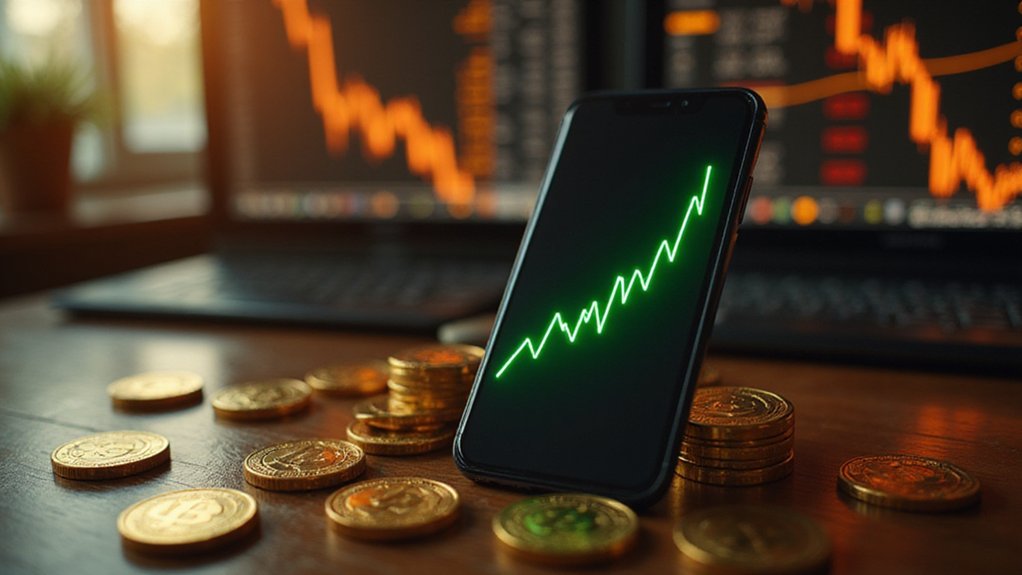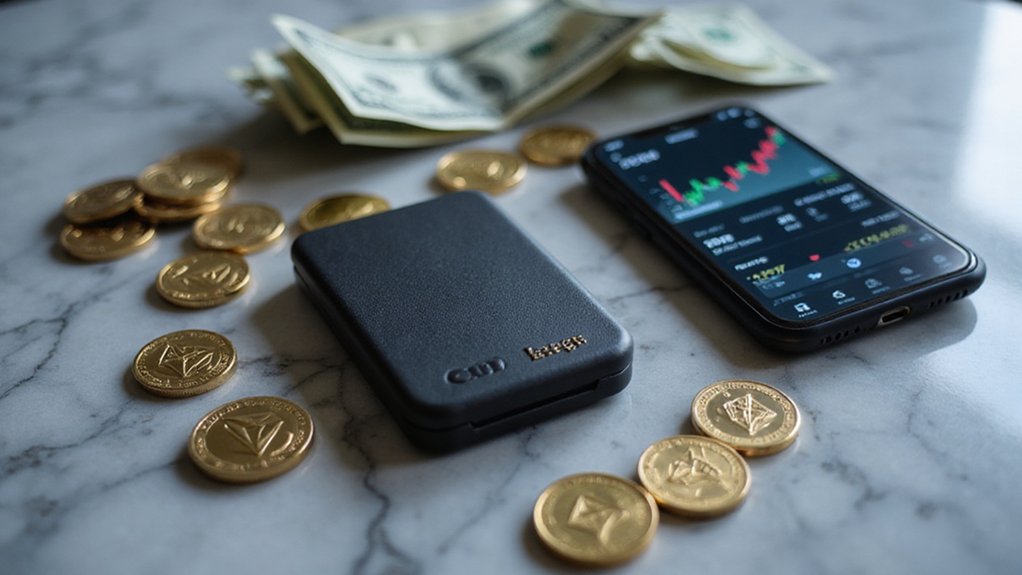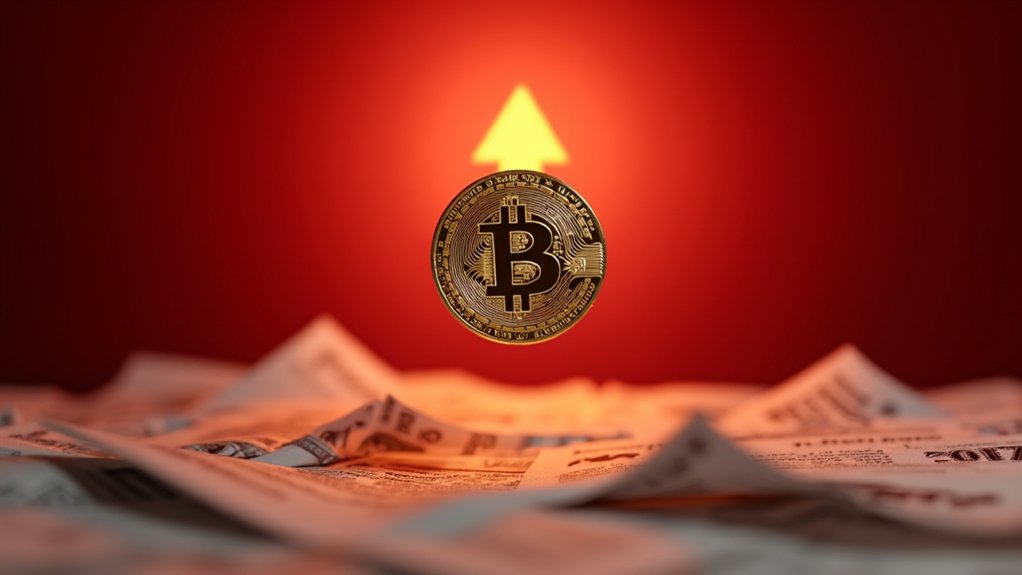The convergence of presidential politics and meme coin speculation reached its inevitable apex on January 17, 2025, when the Trump family launched $TRUMP—a Solana-based token that managed to achieve a $27 billion market capitalization faster than most Fortune 500 companies took to clear their first billion in revenue. The initial coin offering released 200 million tokens to the public while maintaining an 800 million reserve across two Trump-owned entities, a distribution strategy that would make traditional venture capitalists weep with envy.
World Liberty Financial, the Trump family’s 2024-founded crypto venture, orchestrated this digital gold rush alongside $MELANIA coins, transforming what began as meme coin speculation into a $350 million revenue generator by March 2025. The financial mathematics prove staggering: crypto holdings now represent nearly 40% of the Trump family’s net worth, with a $2.9 billion increase recorded over six months—returns that dwarf most hedge fund performance metrics.
The strategic implications extend beyond mere wealth accumulation. MGX, an Abu Dhabi-backed investment firm, committed $2 billion toward World Liberty Financial‘s stablecoin products, while simultaneously investing in Binance, creating an interconnected web of international crypto relationships that raises fascinating questions about regulatory jurisdiction and presidential influence. The absence of established regulatory frameworks specifically designed for cryptocurrency ventures involving elected officials creates a governance vacuum that traditional oversight mechanisms struggle to address.
Market dynamics reveal the inherent contradictions of meme coin economics: despite minimal 24-hour trading volumes relative to market capitalization, $TRUMP maintains its astronomical valuation through what can only be described as speculative faith. The Solana blockchain’s transaction efficiency supports this digital theater, though price fluctuations suggest underlying volatility that traditional financial advisors would find deeply unsettling. The token’s immediate success generated nearly $100 million in trading fees within the first two days, demonstrating the sheer volume of speculative activity surrounding the presidential meme coin.
Ethics critics have predictably emerged, questioning the propriety of presidential cryptocurrency promotion and citing transparency concerns regarding token distribution. The regulatory scrutiny intensifies these debates, particularly as the Trump administration’s crypto-friendly policies directly benefit an industry that has become both significant campaign supporter and personal wealth generator. The administration has paused investigations into multiple crypto companies while simultaneously issuing executive orders to promote digital currencies, creating a regulatory environment that directly benefits Trump’s expanding cryptocurrency empire.
The convergence creates an unprecedented scenario: a sitting president whose financial interests align so directly with regulatory decisions that the potential for conflicts of interest transcends theoretical concern, entering territory where personal enrichment and public policy intersect in ways that previous administrations carefully avoided—or at least attempted to camouflage more artfully.









